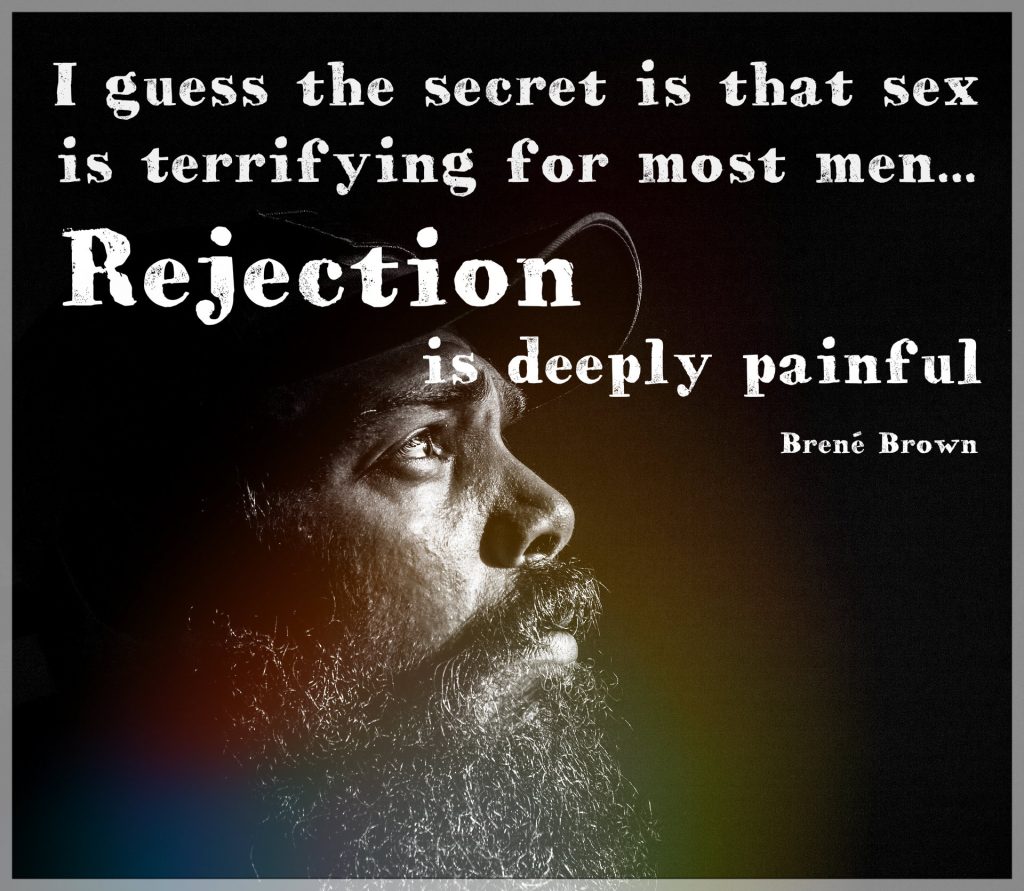Another of our colleagues has entered the blogosphere. Sarah Hunter Murray has been on our therapy staff for several years…during her first year with us, she was doing research and writing a thesis looking at the male perspective of sex. She is passionate about helping people explore and understand sexuality…and in her gentle way, encourages folks to bravely enter into dialogue about the last topic people actually feel comfortable talking about: Sex.
We’re thrilled to have her writing up on our blog. Watch for more blogs from Sarah soon!
Men are always interested in sex. They want sex anytime, anywhere. And mostly they are just interested in physical gratification. Nothing complex going on there.
Right?
You wouldn’t be alone in thinking that to be the case. After all, we get the message that men are sex crazed in the media and in our society pretty regularly.
But I’ve talked to plenty of men (in therapy and for my academic research) about their sexual desire. This assumption about men’s interest in sex being high and unwavering severely short changes men’s experiences.
So what is so complex about men’s desire?
First, let’s talk about what increases men’s interest in sex.
Almost every man I’ve talked to about sex has mentioned their need to feel desired by their female partner (i.e., they don’t want to just “do the wanting”).
Men value:
- receiving compliments,
- perceiving their partner’s interest in them, and particularly,
- having their partner initiate sexual activity.
However, most men also say that either their female partner isn’t aware that this is important to them or, if they are aware, their partners aren’t doing it very often.
Most men I’ve talked to also say they are turned on by intimate communication.
Yes, you read that right.
The majority of men I’ve interviewed told me that a meaningful, deep conversation with a partner increased their interest in sex. They described feeling understood, connected and close to their partners and this was described as increasing desire.
A far cry from just wanting a quick physical release, right?
And men aren’t always interested in having sex.
I’ve interviewed men about times where they are less interested in sex.
Can you guess what the top reasons were for men’s drop in sexual interest?
- When they felt disconnected from their partner.
- Times where they were not getting along very well or weren’t spending a lot of quality time together.
- Times where they did not feel they were on the same page or just couldn’t see eye to eye.
- And by far the biggest reason men said their sexual desire decreased, or was absent all together, was when their sexual advances were being rejected over and over again.
Because most men I talk to don’t just want the physical sensations of sex.
Men want to connect intimately and emotionally with their partner. So sometimes initiating sex can appear to be physical, but it is so much more than that.
Men want to connect intimately and emotionally with their partner. Share on X
Consequently, having their partner say no to their sexual advances (regularly, and over a longer period of time) isn’t just a lost opportunity to have sexual gratification. It can feel like a rejection of him as a person and a rejection of his attempt to reach out and connect on all levels.
Assumptions about men’s desire being high and unwavering pigeon hole men unfairly as being simple and only motivated by physical gratification. This is far from the truth –not to mention far from what most female partners want in a sexual encounter!
These assumptions do not allow men the space be seen as vulnerable and authentic in their sexuality.
So maybe let’s start moving away from the assumption of men wanting sex anytime, anywhere?






2 Comments
Nice blog entry but I find it a bit disappointing that a blog entry on male sexuality is limited to the view that this means heterosexuality.
Hi Jason! Thanks for taking the time to share your thoughts. You’re absolutely correct that this entry was addressing heterosexual men’s experiences. The good news is that I am planning on writing more entries for this blog that address various sexual orientations, relationship structures (and topics other than desire) in the upcoming months. My hope is that over the next little while the content across the blog entries will tap into the broader and diverse experiences of men’s sexuality. – Sarah
Write a Comment
Categories